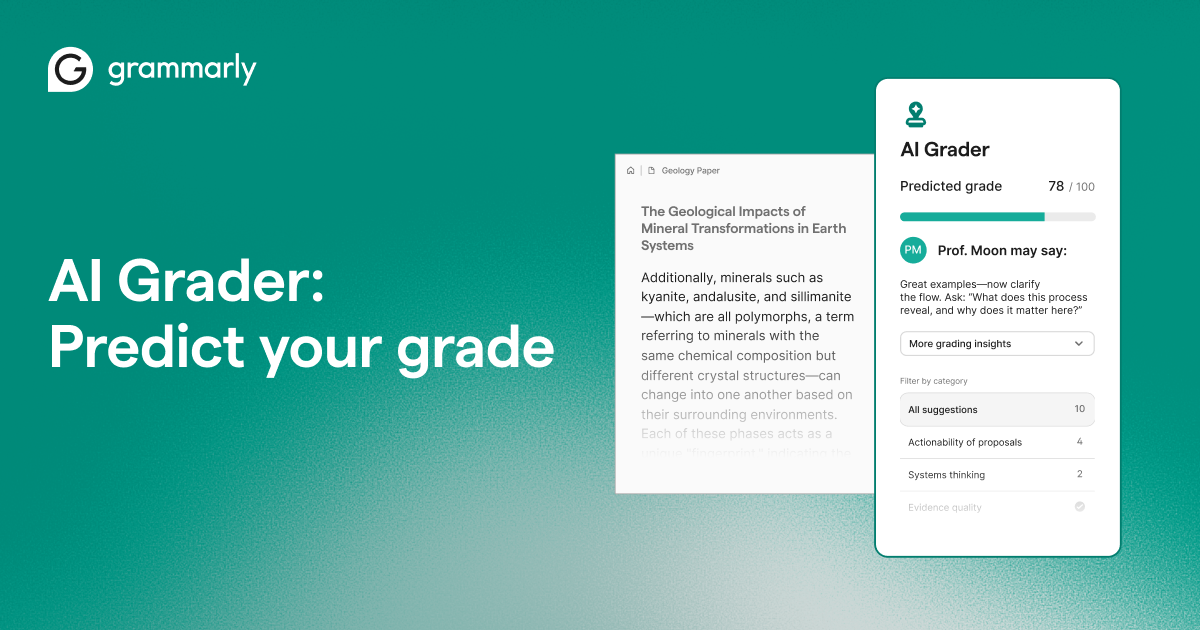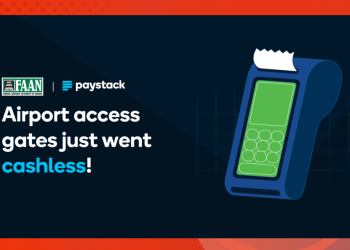Grammarly just introduced eight specialized AI agents that promise to transform how students write papers and how educators evaluate them. The writing assistant company expanded beyond basic grammar checking to offer tools that predict grades, detect AI-generated content, and automatically generate properly formatted citations.
AI Grader Agent Uses Public Information About Your Professor
The most ambitious tool in Grammarly’s new lineup is the AI grader agent. This feature analyzes uploaded course details and publicly available information about instructors to estimate what grade a paper might receive. Students can get feedback on their work before submission and make improvements based on the predicted outcome.
The grader agent tailors its recommendations to specific professors’ known preferences and grading patterns. This approach moves beyond generic feedback to provide personalized guidance that accounts for individual instructor expectations.
Eight New AI Agents Target Different Writing Challenges
Grammarly launched multiple specialized agents to address specific student needs:
- The Reader Reactions Agent predicts what questions readers might have after finishing a paper. This helps students identify gaps in their arguments or explanations before submission.
- The Proofreader Agent provides inline writing suggestions throughout the document. It catches errors and style issues in real-time as students type.
- The Paraphrase Agent adjusts writing tone, style, and audience to match assignment requirements. Students can quickly adapt their voice for different academic contexts.
- The Citation Finder Agent automatically generates correctly formatted citations for claims made in papers. This tool scans content and suggests appropriate sources with proper academic formatting.
- The Expert Review Agent offers topic-specific feedback based on the subject matter. Each paper receives specialized guidance relevant to its academic field.
Educators Get Plagiarism and AI Detection Tools
Grammarly also created tools specifically for instructors. The plagiarism checker agent scans vast databases, academic papers, websites, and published works to identify similarities with student submissions.
An AI detector agent provides scores indicating the likelihood that text was written by artificial intelligence versus humans. However, education experts have raised concerns about AI detection accuracy, with many institutions recommending against using such tools for academic integrity violations due to high error rates and potential bias.
Free Access Strategy Aims to Capture Student Market
All eight new agents launch at no additional cost for Grammarly Free and Pro users. The company plans to extend these features to Enterprise and Education customers later this year, along with additional agents still in development.
This pricing approach positions Grammarly competitively in its growing market. The AI writing assistant software sector was valued at $1.7 billion in 2023 and projects growth at over 25% annually through 2032.
Grammarly currently holds approximately 15% market share in the AI writing assistant industry and serves over 3,000 higher education institutions.
New Writing Interface Called Docs Launches Alongside Agents
The agents operate within Grammarly’s new AI-native writing surface called Docs. This interface integrates all tools into a single workspace where students can access specialized assistance without switching between different applications.
Jenny Maxwell, Head of Grammarly for Education, emphasized the company’s approach to responsible AI use.
“Students today need AI that enhances their capabilities without undermining their learning. Our new agents act as real partners that guide students to produce better work while ensuring they develop real skills.” Maxwell said in the company’s press release.
Privacy and Academic Integrity Questions Remain
The launch comes as educators grapple with AI’s role in academic integrity. Research shows 86% of higher education students regularly use ChatGPT in their studies. Many institutions struggle to balance AI assistance with maintaining authentic student work.
Grammarly’s AI detection capabilities face the same accuracy concerns that have led universities like University of Pittsburgh and Cornell to recommend against using automated detection tools.
The company positions its tools as supporting AI literacy rather than enabling academic dishonesty. The agents seeks to teach students effective AI collaboration skills needed in future workplaces while maintaining educational integrity.
Market Impact and Competition Response Expected
Grammarly’s expansion puts pressure on competing education technology providers. The company generated $251.8 million in revenue in 2024, representing 40.76% year-over-year growth.
Fast Company recognized Grammarly as one of 2024’s Most Innovative Companies in the Artificial Intelligence sector. This latest launch reinforces the company’s position as education technology platform.
Grammarly plans broader rollouts to institutional customers throughout 2024, potentially setting new standards for AI-assisted academic writing tools.














